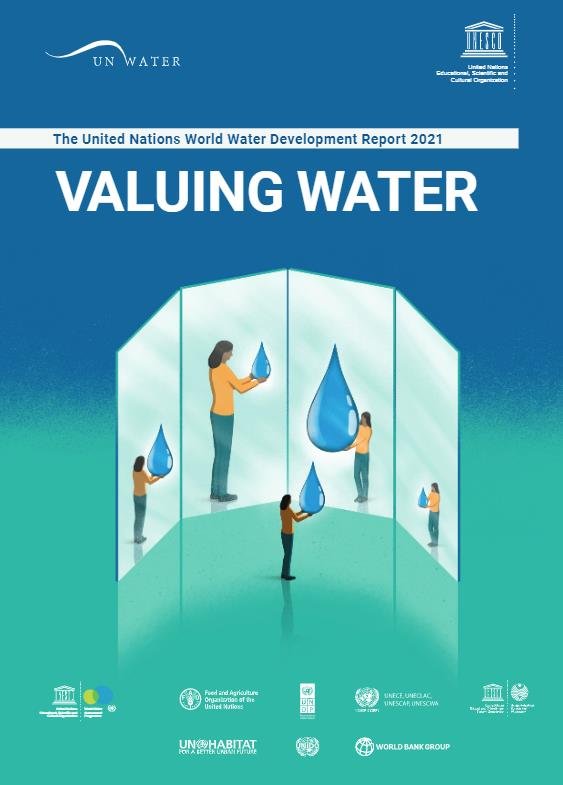 Read this article in French
Read this article in French- Share this article
- Subscribe to our newsletter
UN World Water Development Report 2021
The latest United Nations World Water Development Report (WWDR) entitled “Valuing Water” was published by UNESCO on behalf of UN-Water in March 2021.It shows that waste and careless use stems from the fact we all too often think of water exclusively in terms of its cost price, without realising its tremendous value, which is impossible to price.
The value of water is certainly incalculable and limitless, since life cannot exist without it and it has no replacement. The report emphasises the great need to broaden the notion of the “value” of water, stressing that we cannot confuse the concepts of “price”, “cost” and “value”. Although price and cost are potentially quantifiable, the concept of “value” is much wider and includes social and cultural dimensions.
Indeed, water is not like other raw materials which can be treated as commodities and openly traded through stock markets. The challenge is to determine a value for a resource whose importance varies in different areas of economic activity, at different times, without forgetting to take into account its social, environmental and cultural dimensions.
Monetary valuation of water excludes important aspects
The tools we have today tend to reduce the value of water to its economic aspect, the authors say. Pointing out that the economic value of water cannot be denied considering its myriad uses in food, electricity and industrial production, to name just a few.
While monetary valuation has the advantage of convenience and easy legibility in agriculture and industry, it presents the disadvantage of underestimating, even excluding, other aspects which are more difficult to monetise. How do we quantify the meaning of the 443 million schooldays missed annually due to water-related diseases?
Furthermore, some societies reject the idea of viewing nature and its benefits from an economic perspective, putting the rights of “Mother Earth” to the fore, thus rendering such economic readings of the value of water woefully inadequate.
Faced with these views and those of investors who consider that resources such as water can have an economic value put on them, it becomes difficult to develop a standard system to measure the value of water in all its aspects.
Developing an integrated approach
Nevertheless, it is possible to develop an integrated approach that allows the different dimensions of water to be considered together, so as to identify appropriate policy choices, according to the report. A key element of such an approach is to ensure that all stakeholders, regardless of background or gender, are involved in evaluations and decision-making. If we want to enrich our approach to water and stop reducing the resource to its mere monetary value, we must be enriched by the views held by all, especially the people directly concerned.
When major infrastructure projects are studied, for example, it is essential to consider all these different dimensions, to ensure that their social, cultural and environmental consequences are not underestimated. A cost-benefit approach therefore requires considering the different “values” of water.
Similarly, we know that providing universal access to safe drinking water and sanitation in 140 low- and middle-income countries would cost USD 114 billion per year, whereas the multiple social and economic benefits of safe water are difficult to evaluate.
(UNESCO/UN-Water/ile)
Read more and download the UN World Water Development Report 2021 at UNESCO website





Add a comment
Be the First to Comment